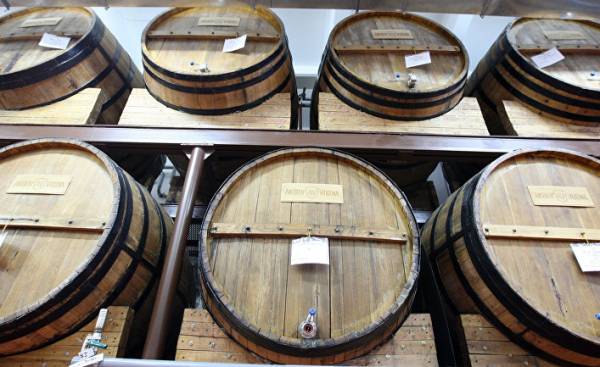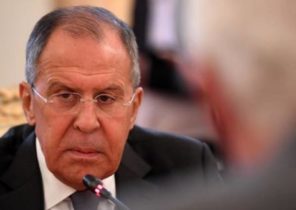
We look at Siberia, most often through the prism of the Gulag, so it seems to us a giant fettered by the ice concentration camp and “inhuman land”, which engulfed millions of innocent victims. Sometimes this darkness is superimposed sad episodes from the life of an exiled tsarist times. But if the history of Siberia and poles, who were there in Stalin’s time, it’s hard to detect bright points, the Polish-Siberian contacts in the years preceding the First world war, looks not so clear, shades it a lot more.
Polish exiles came to the Urals not willingly, but they usually did not lose his presence of mind and quickly became the pioneers in many spheres of life. “The poles did not fall into inactivity, was not suffering, they had no victim complex or paralysis of will, often, unfortunately, observed by Russian exiles. (…) In contrast, the poles did not give up, remained mostly active, though looking at activities an antidote to loneliness, a counterbalance to the defeatist feelings,” — said in one of his articles writer Stefan Bratkovsky (Stefan Bratkowski).
Traveler, researcher and tireless promoter of Polish achievements in Siberia, Palkiewicz Jacek (Jacek Pałkiewicz) told me how once he got his hands on the monthly edition of “Siberia”, which aired in the second half of the XIX century in Irkutsk. Russian journalist of this newspaper complained that the poles began to play the first violin in the economic and cultural life of the city, and the Polish language in the streets was heard more often than Russian. At the same time the same author has recognized the immense contribution of poles to the development of Irkutsk and the region for which they “should be grateful to all the Siberian people and all of society.”
Many of our compatriots took part in the study of the Urals, solving its geographical, geological and natural mysteries. Our exiles spontaneously undertook anthropological and ethnographic research, familiar with the language, culture and customs of inhabiting these areas of indigenous peoples. The names of such scholars as Benedict Dybowski (Dybowski Benedykt), Jan Chersky (Jan Czerski) or Alexander Chekanovsky (Aleksander Czekanowski) inscribed in Golden letters in the annals of world science.
Some poles were sent to the Urals on their own, as, for example, Karl Bogdanovich (Karol Bohdanowicz), which is called the “father of the Geology of Siberia”. Many of them were economic migrants. For bread to the East leaving hundreds of doctors, lawyers, traders and entrepreneurs, graduates of Polish technical universities. According to various estimates, in the early twentieth century the Polish Diaspora in the Urals consisted of 70 thousand people. Why not be an exaggeration to say that the Russians opened up Siberia, and the poles were colonized. Among those who managed to make the Urals career in the financial sector, the brightest figure was, perhaps, Alphonse Poklevskiy-Kozell (Alfons Koziełł-Poklewski) is one of the richest poles second half of the nineteenth century. We all remember that the hero of the novel “the Doll” of Boleslaw Prus Stanislav Wokulski has grown rich on trade with the East and the supplies for the Russian army. Poklevskiy did the same, only, as they say, “in real life”.
Officials in millionaires
Future Siberian Rockefeller was born in 1809 in the Lepelsky district of the Vitebsk province. He came from a family of Polonized Lithuanian nobility (perhaps with Russian roots), and the story of his family went at least to the end of the XVI century. Poklewski was not too wealthy, but they tried to give the young a good education Alfons: first he came to the school of the Piarist order, and then continued his studies at the Vilna University. Poklevskiy chose the career of a tsarist official and from 1830 diligently to overcome the bureaucratic stages of a career. He worked on the conscience, as evidenced, in particular, the award that he, in 1837, received from the Minister of Finance. However, after the November uprising (Polish national liberation uprising 1830-1831 — approx. lane) in the European part of Russia to the poles is treated with suspicion, so Poklevskiy decided to link their fate with Siberia, where national issues have not played a significant role.
In 1834 he went to Tobolsk, and in 1839 came to the service in the Ministry, subordinate to the Governor-General of Western Siberia Gorchakov Peter, and engaged in the supervision of the supply of the army. At this point Poklevskiy career began to develop rapidly. Enterprising and businesslike vein, the pole has established contacts with local entrepreneurs and merchants and felt in the world of TRANS-Ural of the business is so confident that he decided in the end to start their own business. Not refusing service Gorchakov, in 1843 he bought from the merchant Myasnikov in Tyumen steamer and privilege for the establishment of navigation on the Baikal, and also on the Ob, Tobol, Irtysh, Yenisei, Lena, and their tributaries. The pole was in no hurry: at first, he started modernization of the purchased vessel, deciding to equip it, in particular, modern Swedish engine. The first regular shipping line in Western Siberia was launched only in 1846. The steamer cruised mainly on the Ob and the Irtysh, transporting the products, which were introduced to public monopoly: alcohol, salt and tobacco.
In 1852 when the transport company got stronger and started to generate a steady income, Poklevskiy-Kozell finally abandoned the bureaucratic work and focused on business. The accumulated money he opened in Tyumen and Tomsk are two trading houses. They were separated by a distance of 1.6 thousand kilometers, but Polish entrepreneur well thought out step: the two cities stood on two extreme points an important trade route. Using their experience tied while working Gorchakov, revenues from shopping centres and transport fleet (which at that time took three steamboats, dozens of barges and rowing boats), Poklevskiy quickly became the main intermediary in the supply of goods intended for soldiers of the Royal army in the Urals. One luck followed another. Poklevskiy was a brave man and not afraid to take risks, for that, he was overtaken on the step of their rivals. In addition, it is not limited to one sphere of activity, and sought an opportunity to invest earned money in something new. No wonder he was able to quickly amass a huge fortune.
The biggest income to the pole brought the production and sale of alcohol. In 1869 he for little money bought from the state having fallen into decay, distillery Talitsa on the Urals and not only saved him from bankruptcy, but after a few years turned into a thriving enterprise. Then Poklevskiy started buying other plants while creating a network of restaurants that sold its products. So he could control both production and sale. For ten years he virtually monopolized the industry in most regions of Western Siberia and Perm provinces: such a huge amount of beer, vodka and other alcoholic beverages produced and owned by the pole plants. Contemporaries rightly called it “the vodka king of Siberia”. At the end of life Poklevskiy produced in a year in their companies, more than 850 thousand buckets of vodka and 260 thousand barrels of beer, and his network of restaurants that stretched from the Vyatka province in the West to Altay on the East. I should add that these drinks were of high quality and received at the international exhibitions, the gold medals that were then portrayed on the bottle labels.
Alphonse Poklevskiy-Kozell was also invested in industry and mining. He owned several gold and silver mines, metallurgical plant in Chelyabinsk, and in the years 1878-1882 rented the emerald mines in the Urals. He opened the first Russian factory for production of phosphorus and its glass factory, where they manufactured window glass and glassware, covers half the needs of Western Siberia. Built in 1866, huge modern flour mill has made it the largest producer of flour production in the region. It should also mention his participation in the construction of a fragment of the TRANS-Siberian railway: it was one of the shareholders of the company, engaged in the plot Tyumen-Ekaterinburg.
About the personal life of Poklevskiy little is known. He lived in a Palace in Sochi and owned a large building in Yekaterinburg. Michal Janik (Janik Michał), the author published in 1928 the book “History of poles in Siberia”, writes about his “amorous nature” and tells a curious story. Once Poklevskiy allow some embezzlement, which affected the state Treasury. One hard a Royal official, a pole by the name of rimsha (Józef Rymsza), on the trail of the Scam, so that the businessman was threatened with severe punishment. “Then Poklevskiy asked Rimsy the hand of his daughter angelina. The wedding took place, and the subject of abuse was hushed up,” writes Janik.
Have Poklewski had three sons: Vincent, Jan and Stanislaw. The last of them made a career in Russian diplomacy, the other two after his father’s death in 1890, developed the Empire he created. It was a huge fortune, estimated at four million rubles, part of which consisted of real estate in 17 cities and 10 villages. As you can guess, after the October revolution, all the businesses of Poklevskiy nationalized by the Bolsheviks.
Help the exiles
Alphonse Poklevskiy-Kozell most of my life spent in Russia, in the Urals, where he amassed a huge fortune, started a family there, died there, never returning to the land of their ancestors. Meanwhile, he did not forget about Poland and poles. In memory of Polish Siberians he was a man who helped the exiles and surrounded them with care, sparing neither time nor money.
Let’s give the floor to He Librovich (Zygmunt Librowicz) — the author of the first monograph devoted to the fate of our compatriots in Siberia, which was published in 1884, during the life of the Poklevskiy. His Patriotic and charitable activities are described in the book: “He always willingly provided the exiles with material assistance. (…) He not only gave them money, but also helped to find a way to earn, arranging them on their distilleries and other enterprises. Poklevskiy purchased land in Perm province, and set poles (as exiles and came there voluntarily) to the field managers, doctors, and so on. The convicts who were sent to work at the state distilleries under his control, he tried to make life easier, and in General — helped the nation on its capacity. For the exiles of 1863, deprived of any means of livelihood and profession that could help them to give them, he has become a real salvation, suggesting that governors in their restaurants. The profession of innkeeper was not too honorable, but anyway gave a miserable piece of bread. The sincere desire of Poklevskiy to alleviate the plight of the exiles found expression in the seemingly insignificant but very important matters. For example, when in 1857 after the accession to the throne of Emperor Alexander II on businesses in the Nerchinsk received a return of poles to their homeland, Poklevskiy offered free of charge to put them on their ships in Tomsk, which allowed to shorten the path for fifteen hundred miles. He did so several times, reducing the exiles the hard way home or further exile.”
Anthony Kuczinski (Antoni Kuczyński) in his great book “Siberia: 400 years of the Polish Diaspora” gives a fragment from the memoirs of Tokarevskogo Shimon (Szymon Tokarzewski) — exile, said that when Poklevskiy heard about the approaching stage of Polish exiles, he’s just addressed to the relevant Royal officials, redeemed compatriots and gave them jobs in their companies. They were paid very well, though, according to Tokarzewski, “a pole treated Poklevskiy very expensive.” “The industrialist was required to their money to support soldiers who, according to official idea, were designed to keep the exiles escaped from Siberia”.
Together with his wife angelina Poklevskiy baptized the children of their employees, gave money for their education and even sent to Europe, because at that time in Siberia was higher education. The couple donated the money to build Catholic churches, which helped keep the national spirit of the exiles. Polish parishes thanks to them, appeared in Tobolsk, Perm, Tomsk, Ekaterinburg, Omsk. In this context, Tokarzewski leads one funny episode. Once he witnessed how the Poklevskiy introduced the man who collected donations for the construction of a Catholic Church in one of the Siberian cities. “Upon arrival, the collector immediately got a sheet on which were recorded the names of the donors, there had only one name and the sum of 250 rubles. Living as mercury, industrialist grabbed the pen and wrote: “the balance — Alphonse Poklevskiy-Kozell””.
Polish “king of Siberia” (Poklevskiy called so) was founded by several dozen nurseries, schools, hospitals and canteens (in 1868 a soup kitchen where they fed the poor, especially for political exiles, opened, in particular, in Tobolsk) and an orphanage in Omsk.
Siberia — land of promise
Alphonse Poklevskiy-Kozell was able to achieve especially outstanding results, but the poles, for whom Siberia was a real promised land, and who amassed a fortune, was much more. Ignacy Samanski (Ignacy Sobieszczański) in 1905 graduated from the Petersburg Institute of engineers ways of communication and without a penny in his pocket, went to Siberia to look for gold. Precious metal he, however, did not find, but found in surrounding the Baikal mountains, deposits of coal and copper. He opened the mines and, as Poklevskiy, quickly earned them millions. He also eagerly took to his work the poles, and in Irkutsk was built for gentry real estate.
On mining rich and another patron of the exiled poles — Zachary Cybulski (Cybulski Zachary), which eventually receiving a post of the mayor of Tomsk. And the family Zavadowski created in Siberia a real commercial Empire: thanks to them many of the TRANS-Ural towns were to be found the so-called Warsaw stores that sell Polish goods.
It is about these Polish entrepreneurs, engineers, scientists, discoverers and even the ordinary workers and peasants whom fate has thrown in far Siberia, writes in his book “a Night in the Kremlin” Prushinski Xavier (Ksawery Pruszyński). “The Germans considered the contribution of its people in our civilization is huge, but it pales against the background of the contribution that poles have made to life in the Urals. Our engineer built there roads and laying railway lines, found lurking in the land of treasures, ruled the land, established industrial plants and opened schools. (…) What other country in the world has made civilization such a feat, as the poles enslaved in a foreign Siberia! For evidence of this you need not go far in those places is still alive the memory of Polish civilization”.
The fate of the descendant of a millionaire
Grandson of gigolo, which was created in the Urals and in Siberia, the financial-industrial Empire was Alphonse Alexander Poklevskiy-Kozell (1891-1962). During the First world war he served in the Russian army, and in 1918, became an adviser at the Russian Embassy in London. In 1919 he married Zoe, granddaughter of a Russian diplomat, Baron Edward Glass, who signed the agreement to sell Alaska to the United States. Zoe was a lady in waiting to the Duchess of Kent Myrina and governess to her children. Witnesses at the wedding were the Grand Duke Dmitri Romanov (one of the assassins of Rasputin), and count Alfred józef Potocki (Alfred Józef Potocki).
In 1939 Poklevskiy-Kozell he finally settled with his family in England, where he engaged in the assistance to the Polish refugees. He maintained contacts with President Edward Rachinski (Edward Raczyński) and General Wladyslaw Anders (Anders, Władysław), and was also part of the leadership of the Polish Historical Institute named after General Sikorski (Sikorski Władysław) in London.







